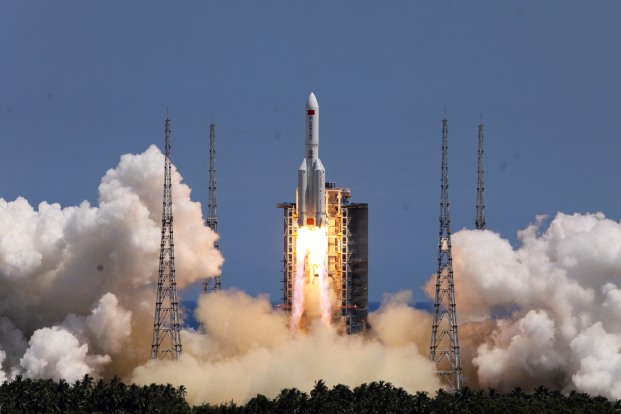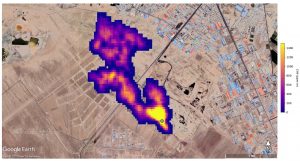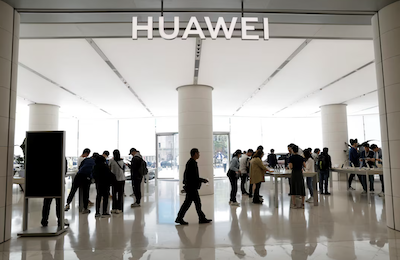Debris from China’s latest space launch may slam back down to Earth in a random location in the the next few days, warned an American astronomy expert.
The Long March 5B rocket launch will leave at least 21 tonnes of debris in low orbit, said Jonathon McDowell, an astronomer at the Centre for Astrophysics, which could then plummet back down to Earth in an unpredictable location.
Unfortunately, it is probable that the 21-tonne core stage will be left in low orbit to make an uncontrolled reentry at an unpredictable location.
— Jonathan McDowell (@planet4589) July 24, 2022
China’s 5B rocket launched on Sunday from the Southern island province of Hainan, as reported by International Business News, lifting a solar powered Wentian lab into the stars to join China’s Tiangong space station.
The new lab will expand China’s efforts to conduct life science research in space, said a CGTN report, featuring a robotic arm and carrying three astronauts who will be able to venture out for spacewalks.
A Random Fall
In 2020 and 2021, Chinese Long March 5B rocket debris crashed down to earth, one hitting the Indian Ocean, and the other damaging villages in Côte d’Ivoire.
China was also blamed for fireballs seen above the Spanish region of Andalusia by astrophysicist José María Madiedo, following its launch of the Long March 2F rocket last month.
“[China is] failing to meet responsible standards regarding their space debris,” said NASA Administrator Bill Nelson in reaction to the recent collisions, as reported by the Washingston Post.
The Chinese Foreign Ministry responded by saying the likelihood of debris causing damage is “extremely low”, the WP report said.
However, it is hard to predict where rocket debris reenters the Earth’s atmosphere, said McDowell, illustrating the disparate reentry locations of 102 Starlink satellites.
Of the 260 Starlink satellites that have reentered so far, we have reentry locations for 102. This plot illustrates that the locations are random, consistent with the fact that the final week of their orbital decay and reentry is uncontrolled pic.twitter.com/brnU18xCfI
— Jonathan McDowell (@planet4589) July 25, 2022
- by Alfie Habershon
Read more:
China ‘Space Fireballs’ Light Up Spanish Sky – MailOnline
China Launches New Lab Module for Tiangong Space Station
China Fears US Will Use SpaceX to Bring Calamity to World
























